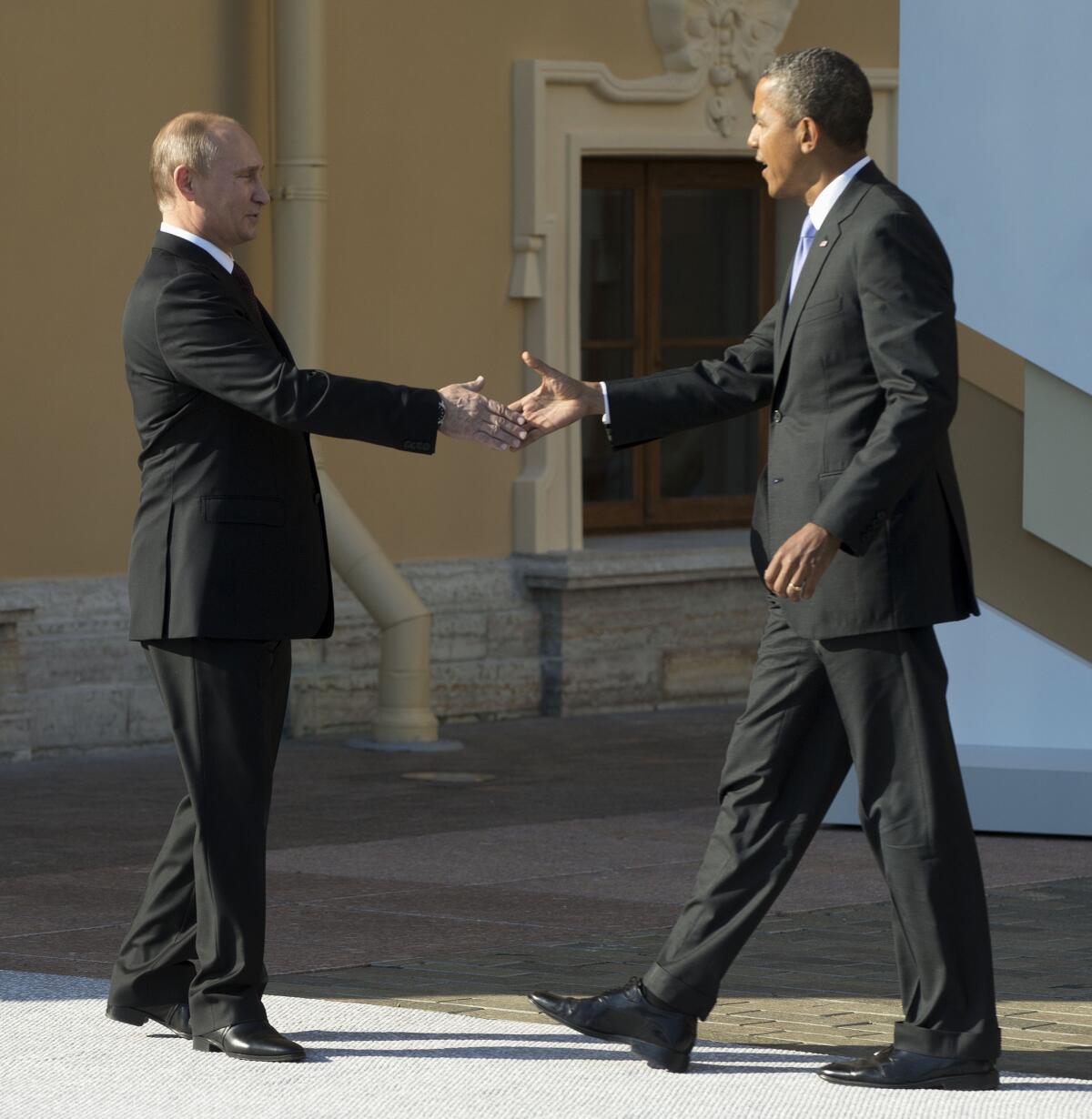Will U.S.-Russia deal change battlefield realities in Syria?

- Share via
Here’s a scorecard on how the U.S.-Russia deal to rid Syria of its chemical weapons may play out for some of the key players:
• A relief for the Obama administration and even more for the American public, which opposes the potential slippery slope of even a limited intervention.
• A setback for interventionists who favor greater U.S. involvement on Syria, where 99% of the deaths have been from conventional weapons.
• A boon for Russian President Vladimir Putin, who’s struggled to rebuild Moscow’s status on the world stage since the Soviet Union’s demise. Next stop: Tehran, to discuss terms for a deal on Iran’s controversial nuclear program.
• A reprieve, at least in the short term, for Syrian President Bashar Assad, because he would be the guarantor of a process running well into next year and even beyond.
• A huge setback for Syrian opposition fighters, who were hoping to take advantage of the degradation of Assad’s arsenal that would have accompanied a U.S. military strike. They also hoped to take advantage of the battlefield psychology of U.S. intervention.
But big, big questions remain:
• Will the wily Assad really comply? There are many reasons he now needs to cooperate, but his regime has a long record of being duplicitous and murderous. So beware and thoroughly verify, especially that he hands over everything. I repeat, everything.
• Is this the first step toward a broader ceasefire, as the U.S. hopes? The old issues remain: The Assad regime doesn’t want to cede power, either for itself or the Alawite minority. And the Syrian leader has Russian backing. The opposition has been so divided that it hasn’t been able to speak with one voice -- either in forming a shadow government that could operate from liberated areas, as in Libya, or even in agreeing on terms for peace. Prospects for peace anytime soon seem unrealistic, given the huge array of players and the growing role of extremists among the opposition fighters.
• Will the deal do anything to change the battlefield realities -- and continuing deaths? Even if a peace process is started, a lot of people may well die as it plays out.
Bottom line? There’s a glimmer of hope on one of the many, many issues in the complex Syrian crisis. But it’s still only a glimmer.
ALSO:
Flying the less-friendly skies
Stop playing politics with hunger
In America, not isolationism but skepticism
Robin Wright is a joint scholar at the U.S. Institute of Peace and the Woodrow Wilson Center. She most recently wrote “The risk of taking on Syria” for our Op-Ed pages and contributed to the Opinion L.A. blog: “Obama’s speech on Syria: Why our analysts are mostly hopeful.”
More to Read
A cure for the common opinion
Get thought-provoking perspectives with our weekly newsletter.
You may occasionally receive promotional content from the Los Angeles Times.










